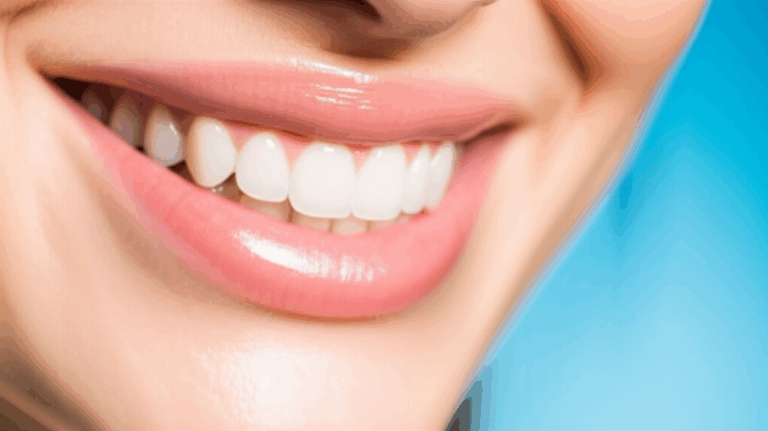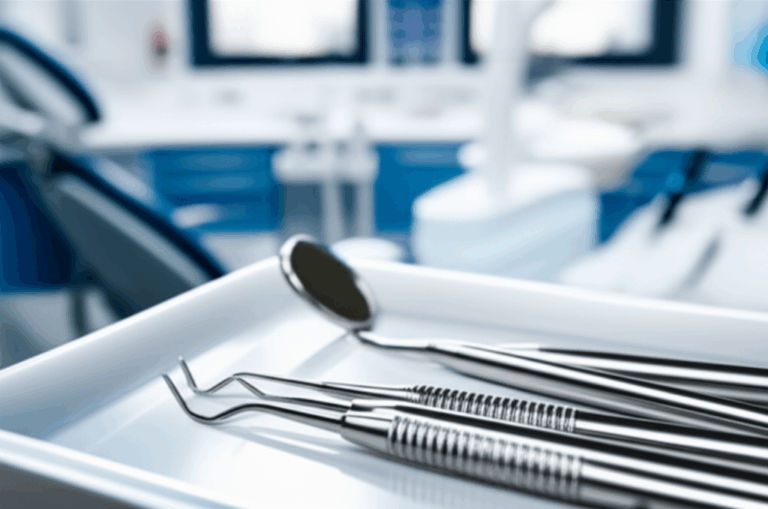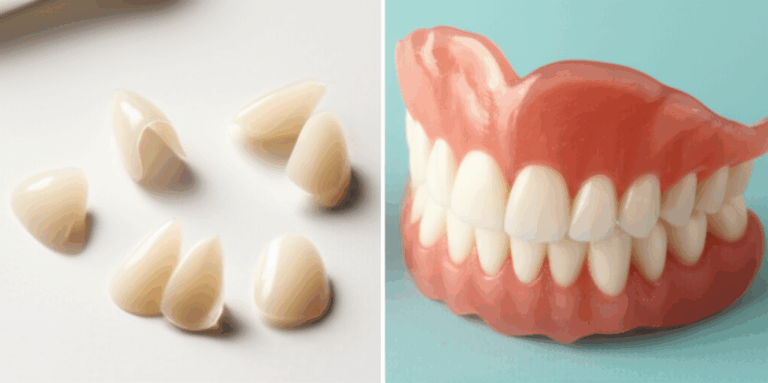
How Long Is Throbbing Normal After a Dental Implant?
Your Complete Guide to Healing, Comfort, and When to Call Your Dentist
If you’re recovering from dental implant surgery, you might be thinking, “Why does it feel like my tooth’s beating like a drum?” Or maybe you’re wondering if the throbbing feeling you have is just part of getting better, or if something’s going wrong. You’re not alone—lots of people ask this same question every year.
First things first: it’s completely normal to feel a bit worried about pain and throbbing after surgery. Dental implants are awesome, but just like any surgery, healing comes with some strange feelings.
Let’s make it simple: some throbbing is normal, especially in the beginning. But how long is it normal? When should you start to worry and call your dentist? This guide gives you clear, honest answers—no big words, no sugar-coating, just real tips for a smooth recovery.
Let’s go through this together.
In This Article
- What’s Causing This Throbbing? Mapping Out the Normal Healing Process
- Days 1–7: Early Recovery and Expected Pain
- Beyond the First Week: When Should Things Start to Improve?
- Red Flags: When Throbbing Isn’t Normal
- What To Do If Your Pain Persists
- Factors That Can Change the Healing Timeline
- Quick Reference Table: Symptoms and What They Mean
- Frequently Asked Questions
- Your Healthy Takeaway: Key Points and Next Steps
What’s Causing This Throbbing?
Mapping Out the Normal Healing Process
Think of your gums and jaw like dirt for a new plant. When a dentist puts in a dental implant—a tiny metal “root”—they’re planting something new. Your body works hard to heal, sending blood and cells to the spot. This makes a throbbing or pulsing feeling, like a soft heartbeat in your gum.
Why does this happen?
- Surgical Trauma: When the tissue is touched or cut, it swells and throbs as it fixes itself. The nerves in the area say, “Hey, let’s fix this!”
- Inflammation: Swelling is just your body’s way to heal. More blood goes to the spot, bringing in helper cells, but this can make the spot feel full and throbbing.
- Healing: As your gum and bone grow around the implant (this is called osseointegration), you might feel a bit sore or achy.
Just remember: pain and throbbing should go down and get better every day—not get worse.
Days 1–7: Early Recovery and Expected Pain
The first week after dental implant surgery is a lot like starting a new workout. You’ll feel sore, but it’s normal.
What’s Normal?
- Peak Throbbing: Throbbing will probably be worst in the first 24 to 48 hours after surgery. This is when swelling and blood flow are highest.
- Getting Better: By day 3, you should feel less pain and throbbing. Most people can start using regular pain medicine like ibuprofen instead of strong painkillers now.
- Other Symptoms: Swelling (which is usually biggest on day 2 or 3), some tiny bruises, and a little pink spit are nothing to worry about.
- How it Feels: The throbbing goes from a strong feeling to a lighter ache. It might get worse when you stand up, move quickly, or if you don’t take your medicine.
How Long Should This Phase Last?
- Throbbing and Soreness Timeline:
- Days 1–3: More throbbing, most noticeable at first.
- Days 4–7: Should go down to a mild ache or be barely there. By the end of the week, most people feel fine or only need a little medicine.
If you’re following your dentist’s directions, you should get better every day. Think of it like lowering the volume of music each day, not turning it up.
Tips for Relief
- Pain Medication: Take it just how your dentist says. After two days, just use over-the-counter medicine most times.
- Cold Compresses: Try an ice pack on your cheek, 20 minutes on, 20 minutes off, for the first two days.
- Gentle Cleaning: Keep the spot clean how your dentist told you, but don’t brush or poke at the wound.
- Soft Foods: Eat yogurt, smoothies, mashed potatoes. No hard, crunchy, or really hot foods.
- Rest: Use pillows to raise your head to help swelling go down at night.
Beyond the First Week: When Should Things Start to Improve?
After the first week, things should start to feel a lot better. What’s normal, and what’s not, gets clearer as you move past week one.
The Two- to Four-Week Mark
- Normal Feelings: Most people don’t have pain, or just feel a dull ache now and then. It could feel gentle if you touch it or brush too hard, but it shouldn’t be pounding or sharp.
- Still Aware?: Sometimes, you’ll still feel there’s something “new” in your mouth. That’s normal. Your mouth is getting used to it.
- Bone Healing: While your bone is joining with the implant now, this part is almost always painless.
What Should Not Happen
- Pain That Gets Worse: If your pain gets worse, something might be wrong.
- Pain That Doesn’t Go Away: If pain is still there every day—and new problems pop up—see your dentist.
Common (But Not Scary) Leftover Feelings
- Mild Gum Soreness: Gums might still be a bit sore near the implant, especially when eating or brushing.
- Mild Swelling: A tiny bit of swelling might stay but should totally go away by week three.
Red Flags: When Throbbing Isn’t Normal
Sometimes our bodies don’t heal like usual. Here’s when you need to call your dentist fast:
Warning Signs
- Pain That Doesn’t Go Away or Gets Worse: If pain stays the same or gets stronger after the first week, that’s not normal.
- Very Bad Pain: If medicine doesn’t help, call your dentist.
- Swelling That Gets Bigger: If swelling gets worse instead of better, or moves up toward your eye or down your neck, call your dentist now.
- Pus or Yucky Liquid: If you see yellow or white stuff, or taste something salty or bitter from the spot, you might have an infection.
- Fever or Chills: If you feel hot or cold, your body might be fighting a big problem.
- Numbness or Tingling: If your lip, chin, or tongue stays numb way after the shot wore off (longer than a few hours), this isn’t right.
- Loose Implant: If your new tooth wiggles at all, see your dentist right away.
- Bleeding That Won’t Stop: If gentle pressure doesn’t stop bleeding, get help now.
- Pain Spreads: If pain goes to your ear, jaw, or head and won’t go away, call your dentist.
What Could Be Happening?
- Infection (Peri-Implantitis): Bacteria can get into the area and cause swelling, throbbing, pain, or pus.
- Nerve Trouble: Rare, but if your mouth stays numb, could be a nerve problem.
- Implant Failure or Rejection: If your implant moves or never feels right, it could be failing.
- Allergy to Metals: Not common, but possible with some implants.
- Too Much Pressure: If the way you bite is hard on the implant, it can get sore and irritated.
Easy rule: If you’re not getting better every day or things get worse, call your dentist.
What To Do If Your Pain Persists
You know your own body. If things feel off, don’t just wait and hope. Here’s what to do:
- Call Your Dentist or Surgeon: Don’t just put up with it. Tell them what you feel—what kind of pain, how bad, how long, and any swelling, fever, or weird taste.
- Don’t Treat Yourself: Things like saltwater rinses or antibiotics you have at home can make it worse unless your dentist tells you it’s okay.
- Get Ready to Go In: Your dentist might want to look at you, take a picture (x-ray), or check for healing or infection.
- Follow Directions Well: Only take the medicine your dentist says, keep your mouth as clean as you can (like your dentist says), and don’t chew near the implant.
Remember: early help is almost always easier than waiting too long. Think of it as looking after your new tooth (and feeling good).
Factors That Can Change the Healing Timeline
Everyone heals differently. Some people heal fast, others need more time. What can slow things down or make pain last longer?
Surgery Details
- More Implants or Bone Grafting: More work in your mouth means recovery takes longer and can hurt more.
- Sinus Lifts: Implants in the top jaw that used this might make it feel full or sore longer.
Your Health and Habits
- Diabetes or Weak Immune System: Slows your healing, so watch extra carefully for problems.
- Smoking: Slows healing, raises infection risk, and pain may last longer.
- Medicines: Things like blood thinners or steroids might slow you down.
- Cleanliness: If you keep your mouth clean (like your dentist says), you’ll heal faster and easier.
Where the Implant Is
- Top or Bottom Jaw: How much blood and what kind of bone you have changes how you heal.
- Chewing Side: The spots you use to chew might be tender for longer.
If your dentist used top tech—like planning with computers or working with a really good dental implant laboratory—healing can be smoother for some. But even with every advantage, everyone is different: give your body time and listen to it.
Quick Reference Table: Symptoms and What They Mean
Here’s a fast chart to help you tell what’s normal and what’s not:
| What’s Happening? | When? | Is It Normal? | Take Action |
|---|---|---|---|
| Mild to moderate throbbing, peaks at 24–48 hrs | Days 1–3 | Yes – expected, should decrease each day | Use meds/cold pack, rest |
| Dull ache, minor swelling, mild bruising | Days 1–7 | Yes – should steadily improve after day 3 | Oral hygiene, soft foods |
| Throbbing almost gone, occasional tingle/ache | Days 7–28 | Yes – mostly resolved by week 2 | Monitor, gentle care |
| Throbbing worsens, spikes, or doesn’t improve | Any | No – possible complication | Call dentist/oral surgeon |
| Severe pain, can’t sleep/eat, unresponsive to meds | Any | No – not normal | Contact dentist immediately |
| Swelling grows or spreads after day 3 | Any | No | Dental/medical consult needed |
| Discharge, pus, bad taste, fever/chills | Any | No | URGENT dental care needed |
| Numbness remains after anesthetic wears off | After first day | No | Call dentist, possible nerve issue |
| Implant/tooth feels loose | Any | No | Immediate dental visit |
Frequently Asked Questions
1. Can throbbing start days after my implant, not right away?
Yes, throbbing can pop up later, especially when swelling is highest on day two or three. But if it starts after feeling better, or comes along with fever or bad taste, that’s a red flag.
2. What if throbbing gets worse at night or when I lie down?
Normal. Lying flat brings more blood to your head, so it can feel heavier. Use pillows to keep your head up and try a cold pack.
3. Will throbbing come back when stitches are taken out or as the implant “settles”?
Maybe. The spot can be sore for a day when stitches come out, but the pain shouldn’t last.
4. I get a mild throb when I eat or brush. Is that a problem?
A little ache is normal at first. But sharp pain, bleeding, or if the implant moves, see your dentist.
5. Can technology or lab choice help my healing?
Yes. Good-quality implants—like those from a trusted digital dental lab—can help your mouth heal more smoothly. Good parts and fitting help, but your dentist’s work and your care matter most.
6. How do I know if my dental implant isn’t failing?
You should feel better every day: less pain, no new swelling, and the implant feels solid. If you’re not sure, it’s always okay to check with your implant dentist.
Your Healthy Takeaway: Key Points and Next Steps
Here’s the big picture so you feel good moving forward:
- Some throbbing is normal after a dental implant, mostly during the first few days. It should get better day by day.
- By week two, pain or throbbing should mostly be gone or very light.
- Red flags, like more pain, swelling, numbness, pus, or fever, mean you should call your dental office soon.
- You can help healing by resting, using pain medicine right, eating soft foods, cleaning gently, and following your dentist’s advice (not random tips online).
- Ongoing or worse symptoms are not something to ignore—take action.
Your Next Steps
Your health and comfort matter. If you worry about anything, call your dentist—you’ll always be happy you did. Remember: every day is a step closer to a healthy, happy smile.
*References:
- American Dental Association (ADA), “Dental Implants: FAQs.”
- Misch, CE. Dental Implant Prosthetics (2nd Ed.), Elsevier, 2015.
- Albrektsson et al., “A 15-Year Study of Osseointegrated Implants in the Treatment of the Edentulous Jaw,” Int J Oral Maxillofac Surg.
- Mayo Clinic, “Dental Implant Surgery: Risks, Recovery and Aftercare.”*
> If you ever feel unsure, remember: there’s no such thing as a silly question for your health. Healing takes time—you’re not just fixing your smile, but also building your confidence.








